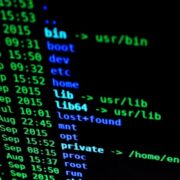Blockchain technology is expected to grow steadily by 2025.
The application of blockchain technology has gained widespread use in the healthcare industry. The technology is proving to be highly beneficial to the industry.
In 2012, Estonia began using blockchain to secure healthcare data and process transactions. Now 95% of health information is ledger-based and 99% of all prescription information is digital. The country’s complete healthcare billing is handled on a blockchain. Click here https://landroidapps.com/ to read in depth articles about different types of technologies.
Table of Contents
Blockhain to secure patient data
Healthcare data breaches are common. Between 2009 and 2017, more than 176 million patient records were exposed in data breaches. In the breaches, hackers stole credit and other banking information. Plus, health and genomic testing records were stolen.
The usefulness of blockchain technology lies in its unmatchable characteristics – immutability and transparency. With these characteristics, patient data can be kept secure. The technology will maintain an incorruptible, decentralized, and transparent log of patient data. Further, blockchain is private, it will conceal the identity of any individual with complex and secure codes that can protect the sensitivity of medical data. The decentralized nature of technology will allow patients, doctors, and healthcare providers to the same information swiftly and safely.
Factom, BustIQ, and Medicalchain are a few healthcare start-ups that are solving this challenge.
Blockchain to streamline medical records
Medical information is sensitive. Needless to say, communication is such information that has to be concrete. However, miscommunication between healthcare professionals is a typical problem. It costs the healthcare industry nearly $11 billion.
Further, obtaining a patient’s medical records is time-consuming process and exhausts staff resources and delays patient care. Blockchain-based medical records overcome this challenge and offer a solution for this chronic problem. Get detailed information regarding technology on this dedicated website: https://linkwat.com/.
The decentralized nature of the technology creates one ecosystem of patient data that can be quickly and efficiently referenced by doctors, hospitals, pharmacists, and anyone else involved in treatment.
Using decentralized-ledger technology (DLT), an ecosystem of patient data can be created. This data can be easily referenced by doctors, nurses, pharmacists, or anyone responsible for the healthcare of the patient.
Robomed and Patientory are a few healthcare start-ups that are building an ecosystem of patient data for hospitals.
Blockchain for medical supply chain and drug traceability
There’s a lack of information related to medicines. People buying medicines don’t whether it came from a legitimate source. In fact, pharmaceutical companies are clueless if substandard medicines are sold in the name of original medicines. For this reason, the supply chain needs to be constantly tracked.
Pharmaceutical supply chain management can benefit from the blockchain technology. Given the decentralized nature of the technology, full transparency can be achieved within the supply chain.
Chronicled and Block Pharma are start-ups that help pharma companies trace their supply chains.
Blockchain for Genomics
The cost of processing a human genome was $1 billion in 2001. Now it costs $1,000. The use of genomics to improve human health is finally becoming a reality. Healthcare start-ups like 23 and Me and Ancestry.com are making DNA tests easy and are unlocking clues to our health and past to millions of homes.
Blockchain fits perfectly in this industry as it can safely house billions of genetic data points. It has developed into a marketplace where people can sell their encrypted genetic information to create a wider database and help scientists to access valuable data faster than ever before.
Research and development are two key areas for the progress of the healthcare industry. Faster research drives new vaccines and medical treatments; while faster logistics ensure speedy provision of healthcare services. In both aspects, the industry has been slow. Blockchain technology presents an opportunity to transform both. Healthcare start-ups are already speeding up this process. For more details, kindly visit this dedicated website: https://linkseed.info/.





















Comments